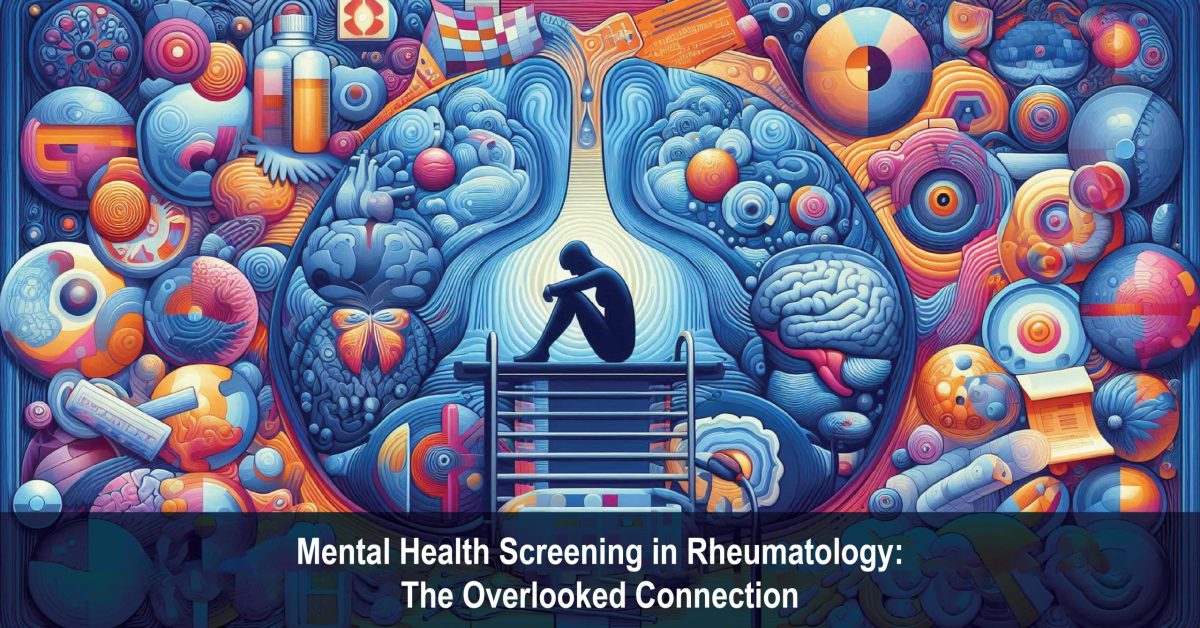Rheumatology, being a medical specialty that deals with the diagnosis and treatment of rheumatic diseases, has for a long time incorporated the importance of musculoskeletal pain, particularly arthritis and autoimmune diseases. However, one of the usual and frequently neglected aspects of rheumatology is the high rate of psychiatric diseases in patients with musculoskeletal pain. It is established that mental health and physical health are correlated; however, assessment of mental health is seldom incorporated into the routine rheumatologic patient examination. Such omissions result in wrong diagnoses, delayed treatment, and therefore unsatisfactory client results. Regarding rheumatology, special emphasis should be placed on the significance of mental health assessment since it is instrumental in the general approach to patients, the identification of correct diagnoses, and in enhancing the quality of life in identified individuals. This blog aims to bring attention to the association between psychiatric disorders and rheumatologic conditions and to stress the importance of introducing systematic mental health assessment in rheumatology practice.
The Epidemiology of Psychiatric Diagnosis in Rheumatology
Many who attend rheumatology clinics have chronic pain in the joints and muscles, which is often undiagnosable, thus being a source of frustration to the patient and the healthcare provider. Some past research has demonstrated that a large number of these patients also have psychiatric disorders; increased rates are recognized in comparison to those observed in general medical clinics. Such patients often have anxiety disorders, depression, and somatoform disorders. Depression and other psychiatric disorders’ incidence in rheumatology patients with BPMs may be as high as 40%, 2–3 times higher than in similar patients in primary care.
It may be postulated that symptoms of psychiatric disorders may enhance rheumatology patients’ perception or reporting of musculoskeletal pain and disability. For example, pain may affect those patients who have anxiety or symptoms of depression, as these patients would have higher pain sensations, more pain, and disability interfering with their quality of life. Moreover, psychiatric disorders interfere with rheumatologic diagnosis, which relates to signs of a diseased mind as being an indication of an underlying rheumatologic condition. This has often made it difficult to disentangle between isolated primary rheumatologic conditions and musculoskeletal manifestations due to psychiatric disorders.
